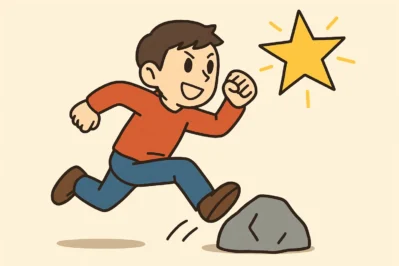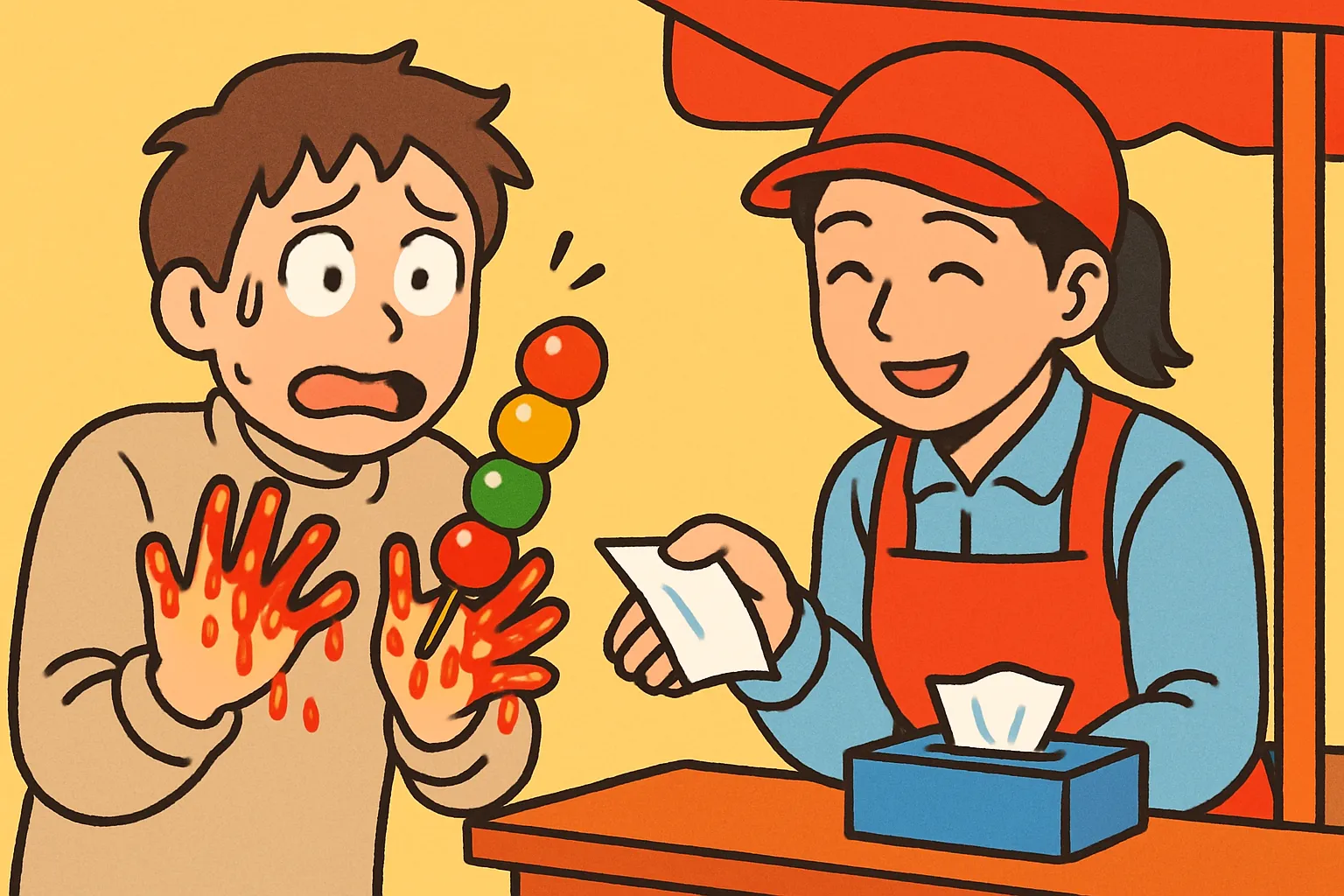실패는 성공의 어머니! Turn Your Setbacks into Success in Korean!
Hello! This is Maeil Hangul (매일한글), here to upgrade your Korean skills!
Have you ever made a mistake and felt too embarrassed to talk about it? We’ve all been there! But what if you could turn those moments into powerful stories of growth? Today, we’re going to learn how to talk about failure in Korean not as an ending, but as a fantastic learning opportunity. This is incredibly useful for job interviews, presentations, or simply sharing your personal journey with Korean friends.
Lately in Korea, there’s a big trend, especially among young professionals, to share “growth stories” (성장 스토리). Instead of only highlighting perfect achievements, people on social media and even TV shows are talking openly about how their biggest failures led to their greatest successes. Ready to learn how to sound like a resilient, forward-thinking pro in Korean? Let’s go!
Core Expressions You Need to Know
Here are some essential phrases to transform your “oops” moments into “aha!” moments.
- 한국어 표현: 실패는 성공의 어머니 (silpae-neun seonggong-ui eomeoni)
- Pronunciation [Romanized]: sil-pae-neun seong-gong-ui eo-meo-ni
- English Meaning: Failure is the mother of success.
- Detailed Explanation: This is a famous and widely used proverb in Korea. It carries a very positive and encouraging nuance. You can use it to comfort a friend who has just experienced a setback or to express your own philosophy about challenges. It shows that you believe mistakes are a necessary step on the path to achieving your goals.
- 한국어 표현: -을/를 교훈 삼아 (-(eu)l/reul gyo-hun sam-a)
- Pronunciation [Romanized]: -(eu)l/reul gyo-hun sam-a
- English Meaning: Taking… as a lesson.
- Detailed Explanation: This is a fantastic grammar pattern that shows a proactive attitude. You attach it to a noun (like ‘failure’ – 실패, or ‘mistake’ – 실수) to show that you are actively learning from that experience. For example, “이번 실수를 교훈 삼아…” means “Taking this mistake as a lesson…”. It signals maturity and a desire for self-improvement.
- 한국어 표현: 값진 경험 (gap-jin gyeong-heom)
- Pronunciation [Romanized]: gap-jin gyeong-heom
- English Meaning: A valuable / priceless experience.
- Detailed Explanation: This phrase is your secret weapon for reframing a negative situation. Even if a project didn’t go as planned, you can call it a “값진 경험” because of what you learned. It focuses on the positive takeaway rather than the negative outcome, making you sound incredibly positive and resilient.
- 한국어 표현: 시행착오를 겪다 (si-haeng-cha-go-reul gyeok-da)
- Pronunciation [Romanized]: si-haeng-cha-go-reul gyeok-da
- English Meaning: To go through trial and error.
- Detailed Explanation: This expression beautifully describes the natural process of trying, failing, learning, and trying again. It’s a very common phrase in professional and academic settings. Using it shows that you understand that perfection isn’t immediate and that you’re willing to go through the necessary steps to get things right.
Sample Conversation
Let’s see how these expressions work in a real-life conversation between two colleagues, Minjun and Sujin.
A: 민준 (Minjun)
수진 씨, 지난번 프로젝트 발표 때 실수가 있어서 많이 속상했죠?
(Sujin, you must have been really upset about the mistake during the last project presentation, right?)
B: 수진 (Sujin)
네, 처음에는 그랬는데… 괜찮아요. 실패는 성공의 어머니라고 하잖아요.
(Yes, at first I was… but it’s okay. They say failure is the mother of success, right?)
A: 민준 (Minjun)
맞아요. 그 경험을 어떻게 활용할 계획이에요?
(That’s right. How do you plan to use that experience?)
B: 수진 (Sujin)
이번 실수를 교훈 삼아 다음 발표 준비를 더 철저히 하려고요. 비록 결과는 아쉬웠지만 저에게는 정말 값진 경험이었어요.
(I plan to take this mistake as a lesson and prepare more thoroughly for the next presentation. Even though the result was disappointing, it was a truly valuable experience for me.)
A: 민준 (Minjun)
멋진 태도네요! 원래 다들 그렇게 시행착오를 겪으면서 성장하는 거죠.
(What a great attitude! That’s how everyone grows, by going through trial and error.)
Culture Tip: Mastering the “Growth Story” (성장 스토리)
In Korea, the concept of a “성장 스토리” (seong-jang seu-to-ri) is huge right now. In job interviews, companies don’t just want to hear a list of your perfect successes. They want to know if you can face a challenge, learn from it, and grow stronger. This is where today’s expressions become your superpower!
When you share a story of failure, the Korean way is to always conclude on a positive note. Explain what you learned (the 교훈) and how it made you better. Using phrases like 값진 경험 or 시행착오를 겪다 shows interviewers and friends that you have a “growth mindset” (성장 마인드셋), which is a highly admired trait in Korea’s dynamic and competitive society. So next time you talk about a mistake, remember to frame it as a stepping stone, not a stumble!
Let’s Review and Practice!
Great job today! We learned how to talk about our mistakes in a positive and constructive way using four key expressions: 실패는 성공의 어머니, -을/를 교훈 삼아, 값진 경험, and 시행착오를 겪다.
Now it’s your turn to practice!
- Fill in the Blank:
- The project failed, but I’m not giving up. I will take this experience as a lesson and try again.
- 프로젝트는 실패했지만 포기하지 않을 거예요. 이번 경험을 __________ 다시 도전할 거예요.
- Make a Sentence:
- Using the phrase 값진 경험, write a short sentence about a mistake you made while learning Korean and what you learned from it.
Share your own “growth story” and your answers to the practice questions in the comments below! We can’t wait to read about your 값진 경험






